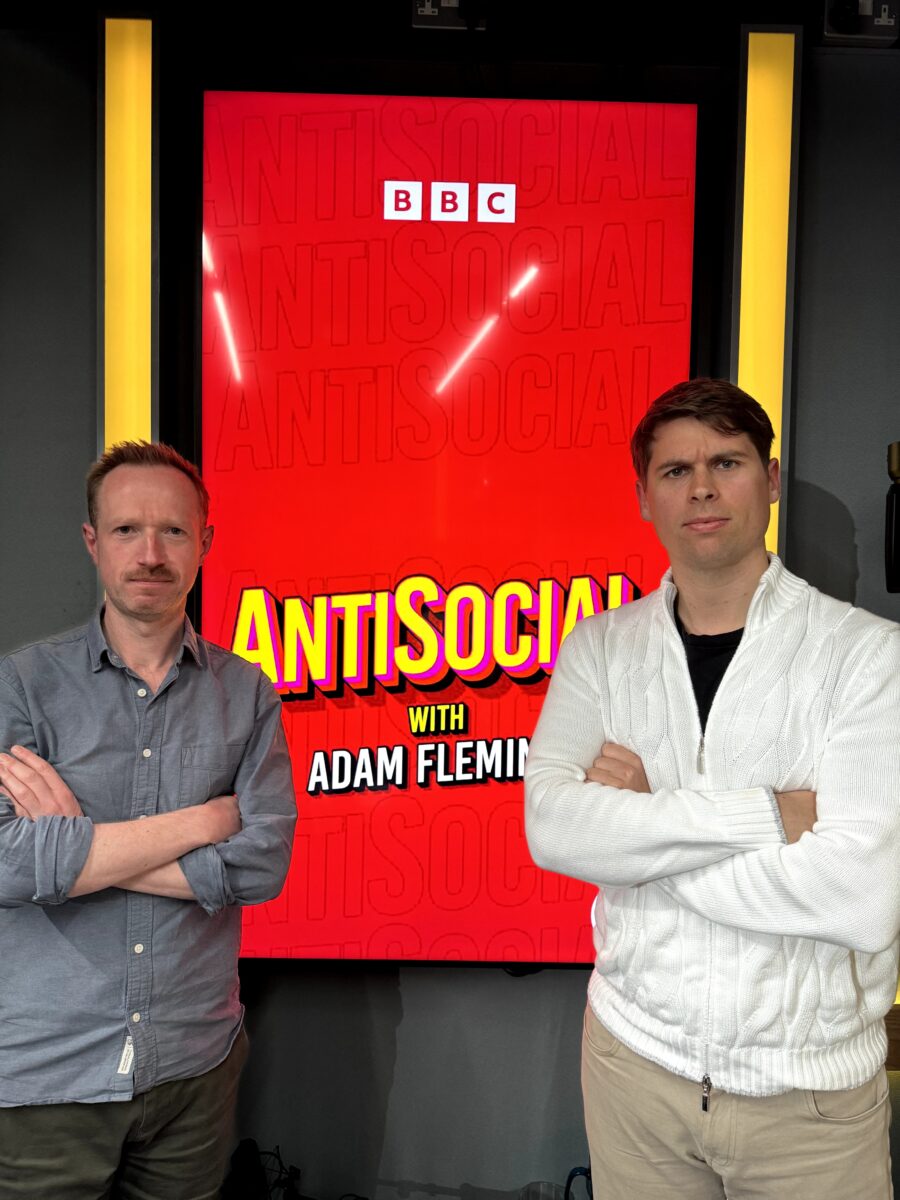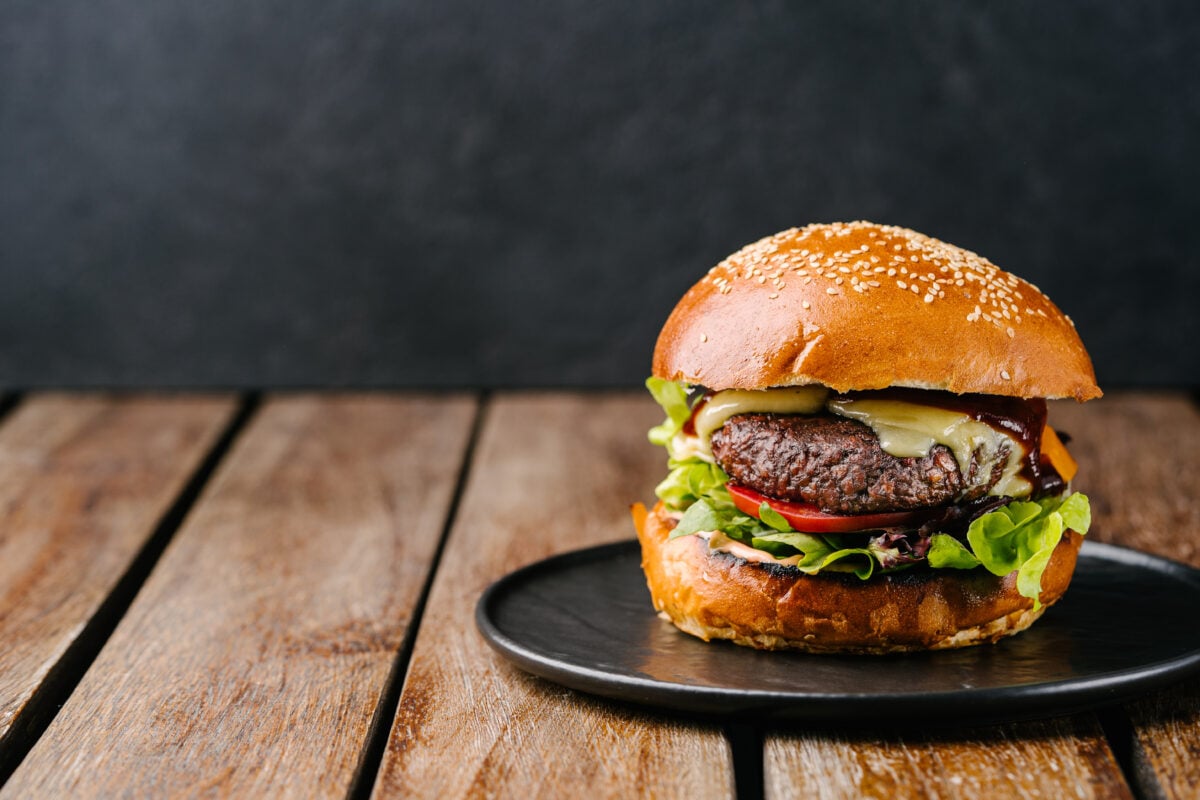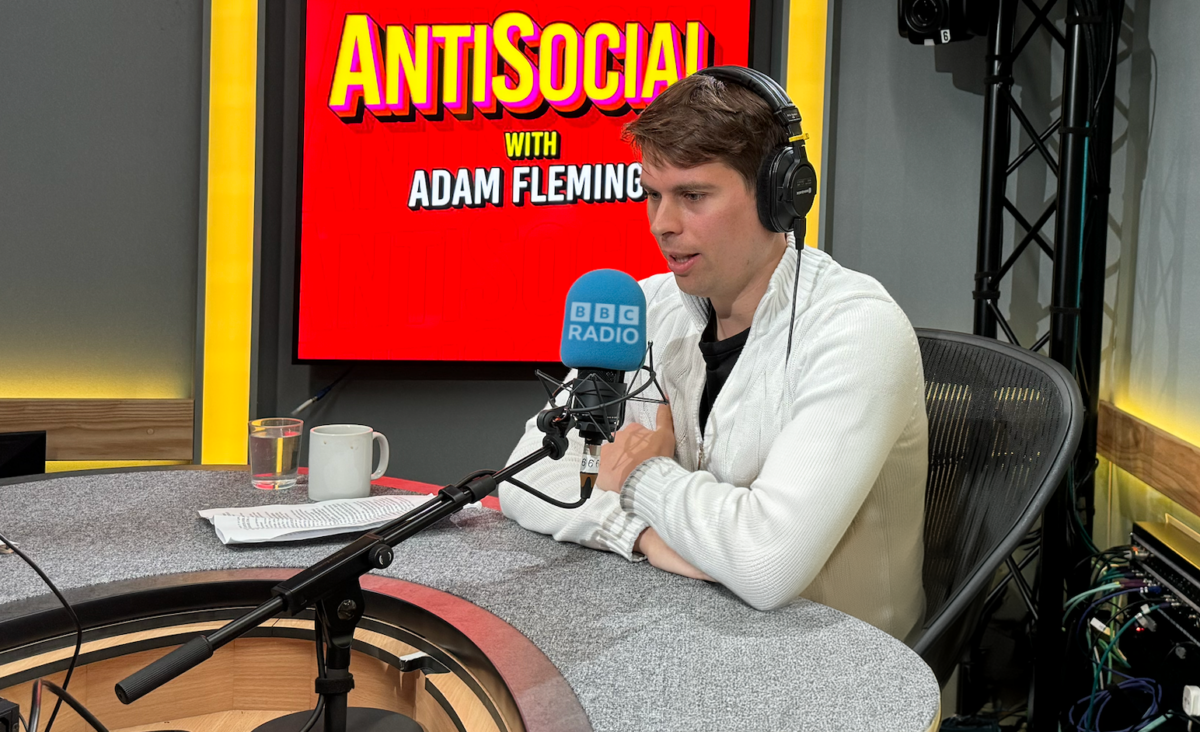In a BBC debate aired on May 31, Plant Based News (PBN) founder Klaus Mitchell discussed the controversy surrounding “ultra processed” vegan alternatives.
Read more: What 7 Plant-Based Doctors Eat For Breakfast
The programme, titled AntiSocial with Adam Fleming, saw Mitchell debate the topic of plant-based diets with restaurant critic William Sitwell. During a discussion about ultra processed foods (UPFs), Sitwell said: “Have you ever seen what’s in vegan mayo, vegan cheese? I wouldn’t have those things in my kitchen, I wouldn’t put them in my mouth.”
To this, Mitchell replied: “If the argument against eating meat replacements is that they’re too processed, then the same scrutiny should be directed towards animal products, which are generally speaking the most processed foods out there.” He went on to state that red and processed meats are classified by the World Health Organization as group two and one carcinogens respectively, meaning they are linked with cancer.

Describing the unnatural process of meat production, he added: “Even grass fed livestock receive various injections including B12, not to mention the artificial insemination they have to endure.
“So processing is an issue. Just because you’re on a vegan diet it doesn’t mean it’s healthy, but the same can be true of an omnivorous diet.”
Vegan meat and the “ultra processed” debate
Plant-based alternatives have a terrible reputation among meat-eaters for being “ultra processed”. UPF is the name given to industrially manufactured products that tend to be high in additives and contain little to no whole foods. The fact that certain vegan meat, dairy, egg products sometimes contain unfamiliar ingredients is seen by some as proof that plant-based diets are unhealthy.
Read more: The Vegan Cheese ‘Health Warning’ – Is There Really Cause For Concern?
It’s true that many vegan alternatives are ultra processed, but that doesn’t mean that plant-based diets are unhealthy. These products often make up small proportions of most vegans’ diets, and many people don’t consume them at all. Studies have shown that whole foods-based vegan diets are optimal for human health, and animal-free diets have been linked to reduced risk of the three biggest human killers: heart disease, type 2 diabetes, and cancer.
Studies on ultra processed vegan meat

As Mitchell pointed out, ultra processed vegan alternatives should be weighed up against their meat counterparts, and studies have indicated that plant-based products are the healthier of the two.
A major study published last year looked into the link between multimorbidity – the co-occurrence of two or more serious long-term conditions, like heart disease and cancer, and various ultra processed foods. While processed meat consumption was linked with increased risk of multimorbidity, their plant-based counterparts weren’t.
UPFs are often put under the same umbrella, despite the fact their healthiness varies widely. Sliced bread and breakfast cereals, for example, are ultra processed, but their impact on us is not comparable to that of ultra processed meat. A study published in February urged nutrition scientists to stop using the term “ultra processed” when referring to vegan meat.
“The UPF categorization simply tells us that, like so much of the food we eat.. are made in factories,” study author Jenny Chapman told PBN at the time. “It is unable to tell you if a food is healthy or not – that’s not what it was designed to do.”
Animal agriculture subsidies
Mitchell’s also pointed out during the debate the extent to which animal agriculture is subsidised. Take Europe for example, where 82% of farm subsidies go towards animal foods. This represents four times as much taxpayer money than what goes into fruit and veg. This makes animal products artificially cheap and encourages their consumption.
You can see an excerpt of the debate here.
Read more: Plant-Based Diets Slow Progression Of Prostate Cancer, Study Suggests






